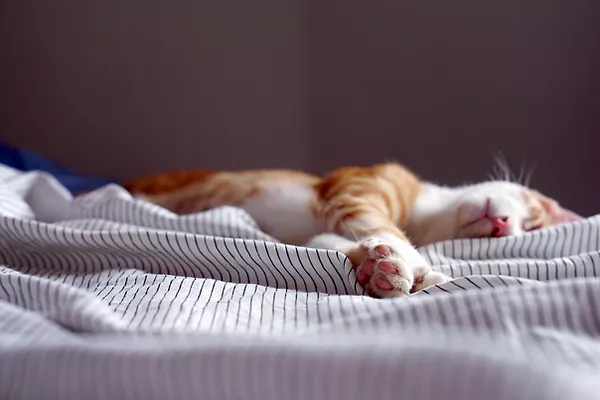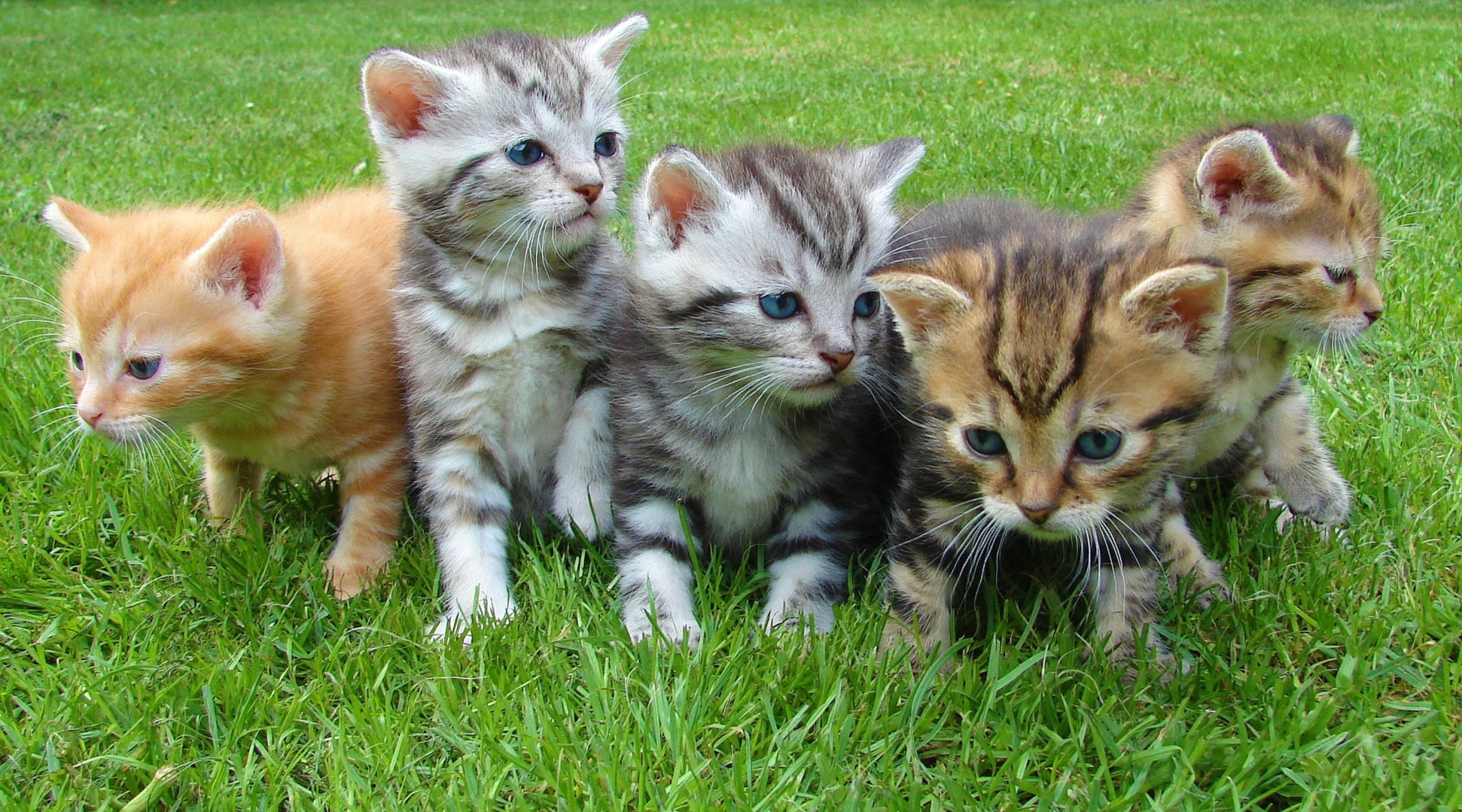Kittens
Cats are great pets, and bringing a new kitten into your home can be a very rewarding and fun time. Below are some notes to help you keep your kitten healthy and happy.
Vaccinations
- Your kitten needs to be vaccinated at 6-8 weeks, 12-14 weeks, and 16-18 weeks of age. A booster vaccine is then required every year for life.
- A vaccination will protect your kitten from infectious enteritis and the organisms that cause ‘cat flu’. These diseases can be serious.
- A vaccine is available for feline immunodeficiency virus (FIV), also known as feline AIDS. This virus interferes with the cat’s immune system and can make it harder for cats to fight off infection. Outdoor cats or cats that often get into fights are highly at risk.
Microchip
- In NSW, all kittens must be microchipped by the time they are 12 weeks old or sold, whichever comes sooner.
- It is also a good idea to have a collar/tags with contact details on them.
A microchip can be a lifesaver – if your kitten is lost or injured and is presented to a vet or the pound, it is easier for us to contact you. Please make sure you keep your details up to date with the council.
Registration
- Registration is required before your kitten reaches 6 months of age.
- New owners can create a profile on the NSW Pet Registry website and then use the microchip number to ‘claim’ their pet. Owners can use their online account to update their contact details, report a missing pet, change a pet's ownership, and make the one off payment for 'lifetime registration'
- Registration is discounted if your pet is desexed.
Desexing
- We recommend desexing for all cats by the age of 5-6 months.
- In females it prevents unwanted pregnancies, uterine infections, cancers and having male cats spraying around your house while your cat is on heat.
- In males it can reduce unwanted behaviours such as spraying, cat fights and they are less likely to wonder far from home.
Pet Insurance
- We highly recommend that you invest in pet insurance for your kitten from a young age. This can save you if an unexpected injury or illness were to arise.
Feeding
- Due to their rapid growth, kittens need food that is carefully balanced with the right amount of vitamins, minerals, protein, carbohydrates and fat.
- Premium brand foods such as Hills and Advance are recommended. These are guaranteed to be complete and balanced foods that get your kitten off on the best start in life.
- The quality of supermarket brands varies considerably - generally you get what you pay for. Make sure the packet mentions that it meets the “AAFCO nutritional guidelines” and you are buying a ‘kitten’ formulation.
- Kitten food should be fed until your cat reaches 12 months of age.


Worming
- Kittens need protection from intestinal worms that cause vomiting and diarrhoea and in large numbers can make them very ill.
- The common intestinal worms are roundworm, whipworm, hookworm and tapeworm.
- Kittens need worming – Once fortnightly until they are 12 weeks old, then monthly until they are 6 months old, then every 3 months for life.
- We recommend milbemax tablets for worming kittens.
Flea prevention
- Fleas are a very common problem for dogs and cats. Many pets are highly allergic to flea bites and develop severe skin irritations.
- Use flea products such as Advantage®, Advocate®, Comfortis®, or Frontline® (monthly) or Bravecto® (3 monthly) to treat the adult fleas that bite your cat and prevent reinfestation.
- The adult fleas on the cat also lay eggs that fall off into your cat’s environment. Regular vacuuming of areas of the house your cat spends time in, as well as regular washing of its bedding, brushes etc. will help reduce the burden of flea eggs that can hatch and re-infest your pets.
- It is important to treat all pets in the household for fleas.
- We do not recommend the use of supermarket flea controls as some of these can contain chemicals that are harmful to cats and many have reduced efficacy against fleas.
House Training
- Always allow kitten access to their own litter tray. In multi-cat house holds, the general rule is one per cat PLUS one more.
- While your kitten is toilet training you may need to have a few trays placed through the house – sometimes when they have to go, it needs to be close by.
- Litter trays should be placed where you kitten feels comfortable and secure.
- Litter trays should be fully cleaned at least once per day.


